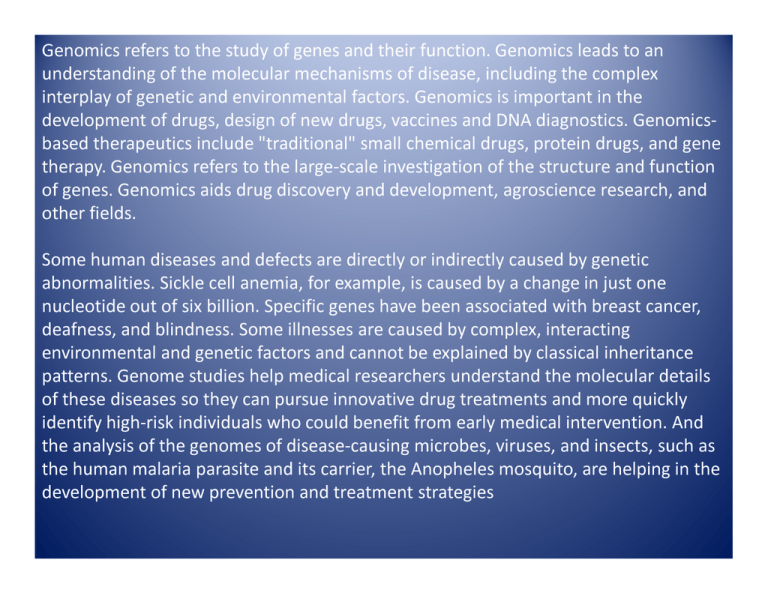Genomics refers to the study of genes and their function.... understanding of the molecular mechanisms of disease, including the complex
advertisement

Genomics refers to the study of genes and their function. Genomics leads to an understanding of the molecular mechanisms of disease, including the complex interplay of genetic and environmental factors. Genomics is important in the development of drugs, design of new drugs, vaccines and DNA diagnostics. Genomicsbased therapeutics include "traditional" small chemical drugs, protein drugs, and gene therapy. Genomics refers to the large-scale investigation of the structure and function of genes. Genomics aids drug discovery and development, agroscience research, and other fields. Some human diseases and defects are directly or indirectly caused by genetic abnormalities. Sickle cell anemia, for example, is caused by a change in just one nucleotide out of six billion. Specific genes have been associated with breast cancer, deafness, and blindness. Some illnesses are caused by complex, interacting environmental and genetic factors and cannot be explained by classical inheritance patterns. Genome studies help medical researchers understand the molecular details of these diseases so they can pursue innovative drug treatments and more quickly identify high-risk individuals who could benefit from early medical intervention. And the analysis of the genomes of disease-causing microbes, viruses, and insects, such as the human malaria parasite and its carrier, the Anopheles mosquito, are helping in the development of new prevention and treatment strategies











